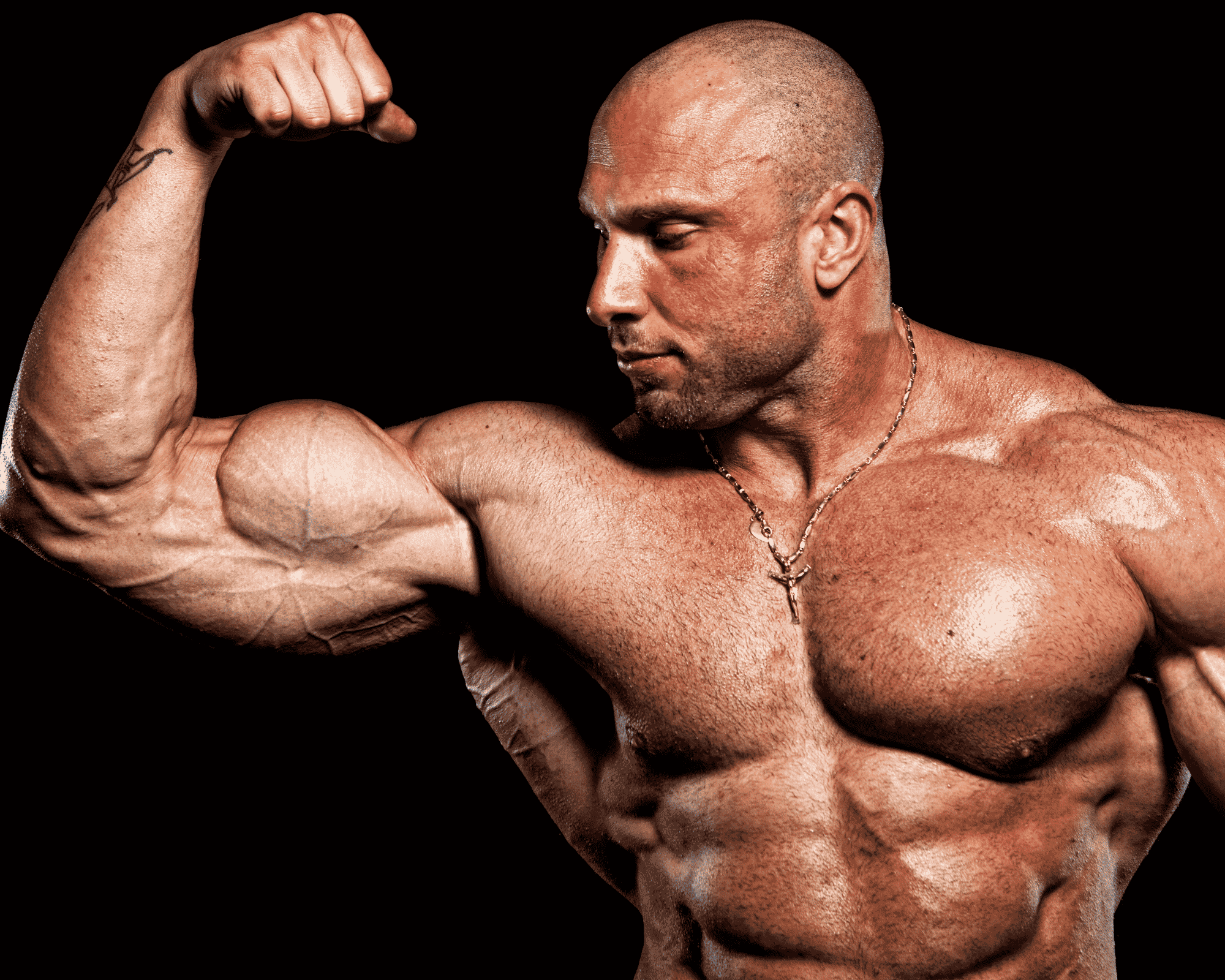Do you want to know how long does it take to build muscle? Most people new to working out and lifting weights have no idea how much time it takes to build muscle. First, it’s important to understand how long it will take before seeing results. Specifically, they want to know how long it will take them to grow muscle mass. Muscle mass doesn’t just happen overnight. It takes time and patience to see results.
While the answer is different for everyone, there are some general guidelines you can follow to give you an idea of what to expect. This blog post will discuss the factors that influence muscle growth and provide tips on maximizing your muscle gains. So, if you’re wondering how long does it take to build muscle, read on!

Muscle Mass Factors
A few key factors influence how long it will take to grow muscle mass. These include:
- Your age
- Your experience level
- How much weight you’re lifting
- How often you’re working out
- Your diet
Age
Age is one of the biggest factors determining how long it will take to grow muscle mass. Younger people can build muscle mass faster than older people. This is because of a few factors, including:
- Younger people have more fast-twitch muscle fibers. These muscle fibers handle explosive movements and grow larger and stronger faster than slow-twitch muscle fibers.
- Younger people have higher levels of human growth hormone. This hormone helps to repair and build muscle tissue.
- Younger people recover from workouts more quickly.
Experience Level
Another factor determining how long it will take to grow muscle mass is your experience level. Beginners see the quickest gains in muscle mass because their bodies are not used to the stress of lifting weights. As your body adapts to the stress of lifting weights, gains will slow down. However, even experienced lifters can continue to make gains. It just may take longer.
Weightlifting
The weight you’re lifting is also a key factor in how quickly you’ll see results. This is because the heavier the weights you’re lifting, the more stress you’re putting on your muscles, and the more they’ll have to grow to handle that stress.
Workout
Another important factor is how often you’re working out. If you’re working out daily, your muscles will have less time to recover and grow between workouts.
So it’s important to give your muscles at least 48 hours of rest in between workouts to allow them to recover and grow. You should see better results with the proper rest if using the best muscle-building exercises.

Diet
Finally, your diet is also a key factor in how quickly you’ll see results. Eating a diet high in protein will help your muscles recover and grow. Eating a diet high in calories will also help, as you need to consume more calories than you’re burning to gain weight.
Gaining Muscle Mass
You can do a few things to maximize your muscle gains and see results more quickly. These include:
- Lift heavyweights. Heavier weights will stress your muscles and force them to grow.
- Work out frequently. The more you work out, the more stimulus you’ll provide for your muscles to grow. Just give yourself enough rest in between workouts.
- Eat a high-protein diet. Eating plenty of protein will help your muscles to recover and grow.
- Consume more calories than you’re burning. To gain weight, you need to eat more calories than you’re burning.
- Get enough sleep. Sleep is important for muscle growth. Get at least 8 hours of sleep per night.
The Last Word on How Long Does It Take to Build Muscle?
How long it takes to grow muscle mass depends on a few factors, including age, experience level, the weight you’re lifting, the time you’re working out, and diet. However, by following the tips above, you can maximize your muscle gains and see results more quickly.
With the right workout and diet, the average person can add one to two pounds of muscle a month. So, if you’re looking to add 10 pounds of muscle, it will take approximately five to six months. However, remember that these are just averages, and some people may see results more quickly or slowly, depending on their circumstances.
Q&A – How Long Does It Take to Build Muscle?”
Q1: How long does it typically take to start seeing muscle growth?
A: Visible muscle growth, known as hypertrophy, typically starts to become noticeable after about three to six months of consistent strength training. However, initial strength gains, often due to neurological adaptations, can be noticed much earlier, sometimes within a few weeks.
Q2: Does the rate of muscle growth vary between individuals?
A: Yes, several factors influence how quickly you can build muscle. These include age, gender, genetics, training intensity, nutrition, and rest. For instance, younger individuals and those new to strength training often experience faster muscle growth compared to others.
Q3: Can diet impact the speed of muscle growth?
A: Absolutely. Diet plays a crucial role in muscle growth. Consuming enough protein is essential for muscle repair and growth. Additionally, ensuring you’re eating enough calories to support your training can significantly affect your muscle-building progress. A balanced diet rich in nutrients is also important for overall health and fitness.
Q4: Is it true that muscles grow while resting, not during workouts?
A: Yes, this is true. Muscle growth occurs during the recovery period, not while you’re actually lifting weights. When you work out, you create small tears in your muscle fibers. The repair process during rest periods is what leads to muscle growth. That’s why adequate rest and recovery are as important as the workout itself.
Q5: How do different types of exercise affect muscle growth?
A: Different exercises and training styles can impact how muscles grow. Resistance training, involving weights or body weight, is most effective for muscle hypertrophy. However, the type of resistance training can also make a difference – for example, lifting heavier weights with fewer repetitions can lead to different muscle growth than lifting lighter weights with more repetitions.
Q6: Can you build muscle at any age?
A: Yes, people of all ages can build muscle, though the rate of muscle growth may slow down with age due to factors like decreased hormone levels and changes in muscle composition. However, with a proper exercise and nutrition plan, individuals at any age can see improvements in muscle strength and size.
Q7: How important is sleep in the muscle-building process?
A: Sleep is extremely important. During sleep, your body releases growth hormones and undergoes repair and recovery processes crucial for muscle growth. Lack of sleep can hinder muscle recovery and growth and can also impact exercise performance.
Q8: Do supplements help in building muscle faster?
A: Some supplements may aid in muscle growth, but they should not replace a balanced diet and a well-rounded exercise routine. Protein supplements, creatine, and branched-chain amino acids (BCAAs) are popular among athletes for supporting muscle growth and recovery. However, it’s important to research and possibly consult a healthcare professional before starting any supplement regimen.
Q9: How often should I change my workout routine for optimal muscle growth?
A: It’s generally recommended to change or modify your workout routine every 4 to 6 weeks. This helps to avoid plateaus, ensures that your muscles are continually challenged, and prevents overuse injuries. However, the exact timing can vary based on individual progress and goals.
Q10: Is it possible to build muscle and lose fat simultaneously?
A: It is possible, especially for those new to exercise or returning after a long break. This process, often referred to as body recomposition, involves losing fat while gaining muscle. It requires a balanced approach to diet and a well-structured workout program that includes both resistance and cardiovascular training.




